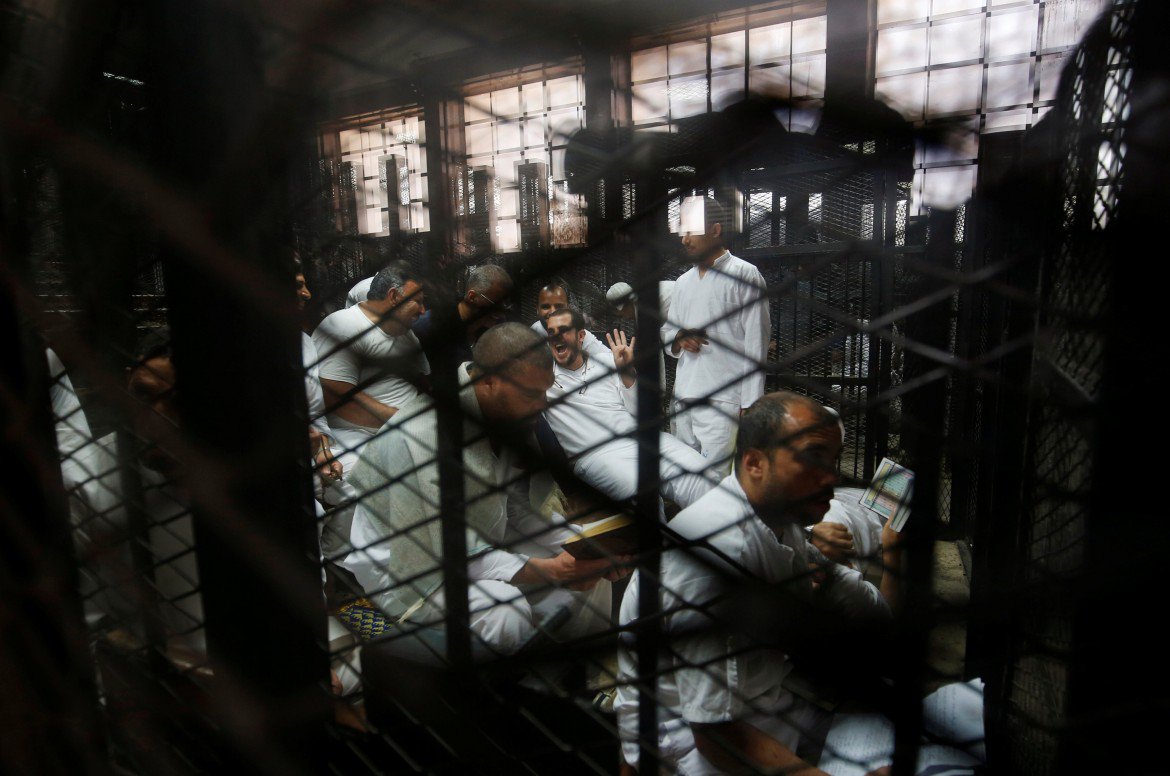Analysis
Egypt uses isolation as a torture method against dissidents
The Egyptian government is increasingly using solitary confinement — without access to lawyers or medical care — to repress political prisoners.

As Egypt’s Abdel Fattah el-Sisi, the former general and coup leader, was listing last week the accomplishments of his two years as president, attorney Maked Adly was counting his first month behind a three-square-meter cell, alone and separated from the rest of the world.
El-Sisi’s list highlighted the eight great infrastructure projects, some of them huge, opened or implemented from 2014 until today. Like the new Suez Canal and the industrial areas surrounding it, or the development project implemented in the Sinai, with brand new farms, roads and residential areas: an expense of over $117 billion, a good part of which was financed by Cairo’s regional and international supporters.
But the list did not mention the mass arrests and the general policy of repressing society, this regime’s true “result,” a “finish-line” never reached before in terms of numbers and pervasiveness. Among the instruments used by Internal Affairs and by Minister Ghaffar, the grise behind the internal oppression campaign, there’s the spasmodic and structural use of isolation.
Many are the political prisoners forced to undergo an additional punishment that has recently been targeted by an online campaign launched on Twitter and Facebook as #NoToSolitaryConfinement: “According to prison regulation,” we can read on the Facebook page, “isolation can last for 30 days at maximum and cannot be used as punishment.”
It’s promoted by human rights activists and families of detainees who publish on the network the stories of those subject to weeks, months or years of total isolation in jail, a practice defined by the United Nations as “torture by law.” Among the Egyptian prisoners subject to isolation, there are known names, attorneys and activists arrested during the last weeks, during the mass detention campaigns set to stop the waves of anti-government protests as a result of the transfer of the islands of Tiran and Sanafir to Saudi Arabia
We have Shawkan, the newspaper photographer for whose release even Giulio Regeni’s family made an appeal; Malek Adly, Manager of the Attorney’s Network of the Egyptian Center for Economic and Social Rights, in isolation for a month; Ahmed Douma, an artist, for three months; Youssef Shaaban, a journalist, for eight. Shaaban’s wife, Ranwa Youssef, is among the campaign’s organizers. “After months of isolation, Youssef’s only desire is to get in the subway and have people around him for as long as possible.”
Those forced into isolation, the human rights organizations explain, obviously cannot receive visits from relatives, and not even food or medicines from his family. They don’t receive medical care, nor visits from their own attorneys. They’re closed in a three-square-meter cell for 22 hours a day during which they don’t have contact with outside. A minimal space without any windows, where often the only personal property is a blanket. Bed sheets, heavy clothing for winters and medicines are not allowed.
The physical and psychological conditions of detention are extreme, inhuman. There have been cases recorded of prisoners who attempted suicide. Some of them were successful in killing themselves; others are killed as punishment. In any case, the psychological effects are devastating. “[Isolation] compromises the ability to reintegrate into society once released from jail,” wrote Juan Mendez, the U.N. special rapporteur for the General Assembly, in 2011.
U.N. or not, Cairo does not fear repercussions. Thursday, Egyptian leaders attacked the European Union and the United Nations, which the regime denounced for bringing up its record of human rights. Ahmed Abou Zaid, spokesman of the Ministry for Foreign Affairs, criticized the E.U. High Representative for Foreign Affairs, Federica Mogherini, who called the arrest of the press union leaders “a troubling development.”
“Before unjustly judging the situation of freedom in Egypt, they should look at how do these people criticize government performances,” he said. Same message for Ban Ki-Moon, the U.N. Secretary General who, on Tuesday, expressed disappointment for the same arrests.
Originally published at http://ilmanifesto.info/no-allisolamento-gli-egiziani-alzano-la-voce/ on 2016-06-04
